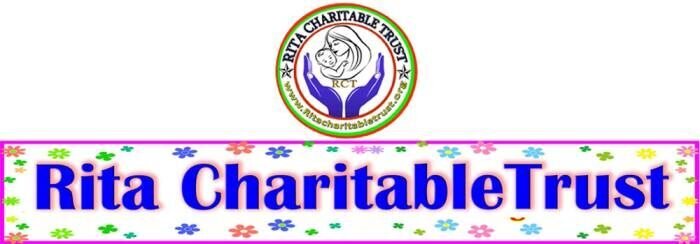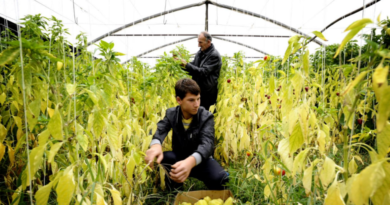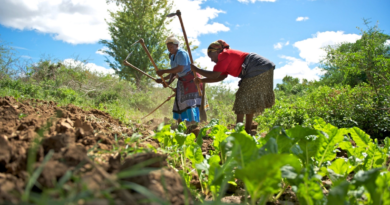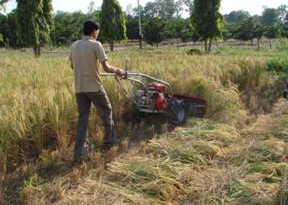Watershed Consultant (6 month course)
Watershed Consultant

Watershed Consultant manages project construction, fundraising, program support and project implementation agency management (PIA). Brief description of the project: Watershed Consultant manages project construction, fundraising, program support and PIA management. She also conducts intermediate correctional testing and final evaluation at the end of the project period. Personal Qualifications: A Drinking Coordinator should have good analytical skills, practical practice skills, strong communication skills and assistive skills. Must be able to integrate and integrate social and political relations with institutions within and outside the project Watershed Consultant.

Design project and provide support in funding Watershed Consultant:
Terms of Service Design the objectives, components and strategies of a wetland project to be effective, one must be able to: PC1. create a comprehensive PIA workspace map from PC2 water view point. identify the long-term goals, strengths and weaknesses of PIA PC3. visits and discussions to selected districts to understand the development needs and opportunities of the community and the PC4 of the country. outline specific objectives, components and strategies of the
water management project in consultation with the PIA and potential funding agency Supporting the PIA in project financing In order to be effective, one must be
able to: PC5. identify potential funding agencies for the watershed project in terms of thematic, geography and PIA statute PC6. arrange meetings / visits to evaluate the partnership between the financial agency and the PIA PC7. assists PIA in preparing a point-forward note for PC8 support. liaising with various financial agencies on behalf of the PIA Watershed Consultant.
Organizational Context (Knowledge of the company / organization and its processes) Watershed Consultant:
The user / person at work needs to know and understand: KA1. organizational processes, practices related to the management of water management projects KA2. job responsibilities / tasks and standard operating procedures Watershed Consultant
Technical Knowledge:
The user / person at work needs to know and understand: KB1. social and technical concepts and practices in participatory management and integration of water resources KB2. planning and facilitation tools and techniques
Core Skills/Generic Skills:
The user / person at work needs to know and understand how to do this: SA1. write a report on the procedures, tools used and results obtained by SA2. evaluate and compile an advisory report based on different SA3 data sets. write informational notes and actions on internal use of PIA learning skills The user / person at work needs to know and understand how to do this: SA4. read and interpret field reports and data compiled by PIA and other SA5 frameworks. read and understand communications from the SA6 financial agency. learn best practices for access to water in all socio-economic and climatic regions and sub-regions (Oral
and listening skills) The user / employee needs to know and understand how to do this: SA7. encourage the management team to carry out the tasks assigned to SA8. listen to and understand the information provided by Speaker SA9. ask questions to team members and community members SA10. recount good practices and experiences with groups and communities B. Making Decision Making Skills The user / employee needs to know and understand how to do this: SB1. integrating socio-economic status in the context of local climate change and opportunities and strategies to improve water development
SB2. integrating the corporate and social policies of existing financial institutions to suit the needs of the community and organizational mechanisms Plan and organize The user / person at work needs to know and understand how to do this: SB3. arrange PIA liaison with potential Customer Centricity funding agency The user / employee needs to know and understand how to do this: SB4. developing relationships and concerns with PIA and financial agency officials Solving Problems
A user / employee needs to know and understand how to do this: SB5. identify the underlying and conflicting ideas that may arise between PIA and the financial agency and you are ready to resolve them Analytical Thinking The user / employee needs to know and understand how to do this: SB6. perform an analysis of the conditions, conditions and institutions of the public, PIA and financial agency Key considerations The user / employee needs to know and understand that: SB7. use thinking and feeling skills to identify any potential problems during the consultation Watershed Consultant

Provide programmatic and knowledge management support Watershed Consultant:
In order to be effective, that person must be able to: PC1. conduct periodic reviews of dam projects managed by PIA
PC2. establish and facilitate consultation processes between PIA, the public and the financial agency to review PC3 program policies and strategies. changed best policies and strategies over time based on best practices and PC4 procedures. Guidance and support for PIA and watershed manager on institutional and administrative issues arising from project implementation Check out the results, results and impact – mid-term To be effective, one must be able to: PC5. describe
monitoring and evaluation indicators based on water objectives and expected PC6 outcomes. schedule and conduct mid-term testing for the end of PC7 aquatic. remove future readings and techniques from PC8 testing. prepare a strategic plan and direct all PIA activities and policy promotion to the funding agency and government

Organizational Context (Knowledge of the company / organization and its processes) Watershed Consultant:
The user / person at work needs to know and understand: KA1. organizational procedures for monitoring and monitoring the KA2 marine environment. job responsibilities / tasks and standard operating procedures KA3. ways to promote the organization Watershed Consultant
Technical Knowledge:
The user / person at work needs to know and understand: KB1. collaborative monitoring tools and process on the performance of KB2. research methods for scheduling tests

Core Skills/ Generic Skills Watershed Consultant:
The user / person at work needs to know and understand how to do this: SA1. write monitoring and evaluation reports SA2. write success stories and policy documents Learning Skills The user / employee needs to know and understand how to do this: SA3. read the records kept in the surplus reports and timelines submitted to the SA4 financial agency. read the process and evaluation reports at successful SA5 institutions. read and interpret government policies and guidelines and finance agencies Oral communication (listening and speaking skills) The user / employee needs to know and understand how to do this: SA6. liaising
with public institutions, PIA groups, finance and government agencies SA7. listen to and understand the different details and opinions SA8. ask effective and productive questions to team members, community members and various agencies B. Making Professional Skills Decisions The user / employee needs to know and understand: SB1. to understand the functioning of the institution within and outside the wastewater project and the PIA and therefore to suggest a new but effective idea in project processes and interventions from time to time Plan and plan User / employee needs to know and understand: SB2. organize and facilitate
workshops and workshops to share experiences and ideas for all SB3 project participants. organize research teams and testing aid Customary Centricity The user / employee needs to know and understand how to do this: SB4. maintaining community and resources as a focus on income and guiding participants in the choice of best results Problem Solving The user / employee needs to know and understand how to do this: SB5. identify potential areas of conflict for all stakeholders and help build a climate of trust and commitment Watershed Consultant
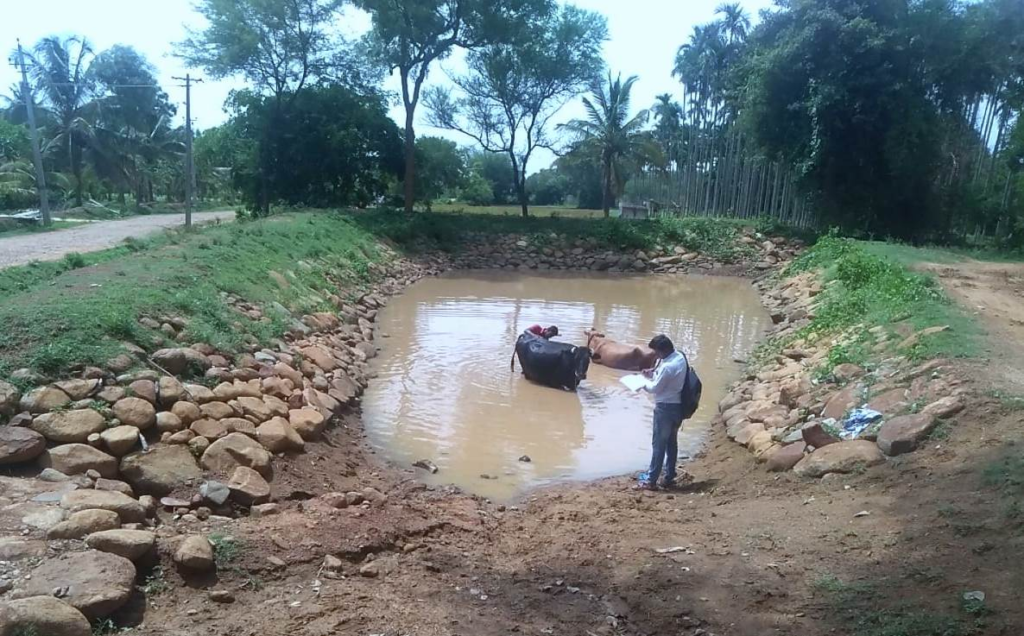


Guidelines for Assessment:
- Criteria for assessment for each Qualification Pack will be created by the Sector Skill Council. Each Performance Criteria (PC)
will be assigned marks proportional to its importance in NOS. SSC will also lay down proportion of marks for Theory and Skills
Practical for each PC - The assessment for the theory part will be based on knowledge bank of questions created by the SSC.
- Assessment will be conducted for all compulsory NOS, as well as the selected elective NOS/set of NOS. OR
- Assessment will be conducted for all compulsory NOS, as well as the selected optional NOS/set of NOS.
- Individual assessment agencies will create unique question papers for theory part for each candidate at each
examination/training center (as per assessment criteria below) - Individual assessment agencies will create unique evaluations for skill practical for every student at each
examination/training center based on this criteria - To pass the Qualification Pack , every trainee should score a minimum of 70% of aggregate marks to successfully clear the
assessment
